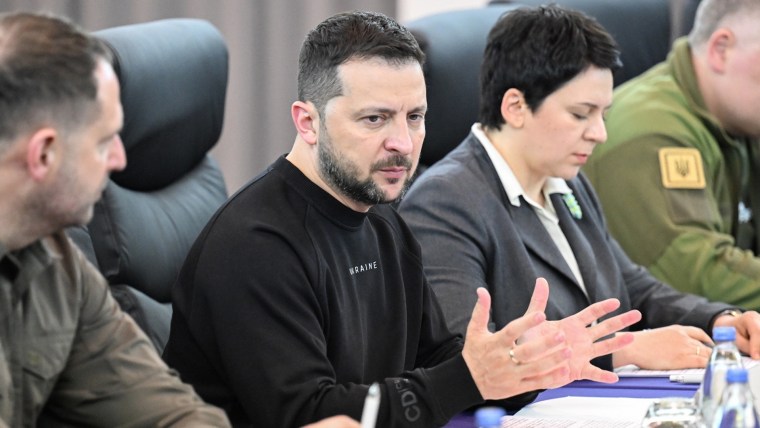Greeks voted on Sunday in the first elections since their country’s economy was lifted from the strict supervision and control of international lenders who had provided bailout funds during its nearly decade-long financial crisis.
The vote pits conservative prime minister Kyriakos Mitsotakis, 55, a Harvard-educated former bank executive, against Alexis Tsipras, 48, who heads the left-wing party Syriza and served as prime minister during some of the most turbulent times of the financial crisis. years, as the two main contenders.
Mitsotakis has repeatedly stressed that he needs a second term to build on what he says he accomplished in his first. He pressed the same line when he spoke to the media after casting his vote.
“Today we vote for our future, for higher wages, for more and better jobs. We vote for a more effective public health, for a fairer society, for a stronger country, which plays an important role in Europe, with protected borders”.
Tsipras, unsurprisingly, painted a bleaker picture of the current government’s record and stressed the need for change.
“Today is a day of hope. Citizens have in their hands the possibility… to change the course of the country, to leave behind a difficult four-year period of inequalities, injustices, enrichment, job insecurity, auctions, indignity for retirees, the attack on youth. Leaving behind an arrogant government that does not feel the needs of the majority,” he said, also promising “a new ethos and style of government.”
The rising cost of living was on the minds of many voters as they headed to polling stations set up in schools across the country.
“Every year, instead of getting better, things get worse,” said Dimitris Hondrogiannis, 54, a resident of Athens. “Things are expensive. Every day, things get out of control. It’s enough to make you afraid to go to the supermarket to buy. ”
Hondrogiannis said he hoped for a stable government that would help bring down the prices of food and general goods. “People can’t make ends meet,” he said.
Although Mitsotakis has been consistently ahead in opinion polls, a recently introduced proportional representation electoral system makes it unlikely that whoever wins the election will be able to win enough seats in Greece’s 300-member parliament to form a government without seeking partners. of coalition.
The winner of Sunday’s election will have three days to negotiate a coalition with other parties. If that fails, the mandate to form a government goes to the second part and the process is repeated; in case of failure, third place also has a chance. But deep divisions between the two main parties and the four smaller ones expected to enter parliament mean a coalition will be hard to find, making a second election, likely on July 2, likely.
The second election would take place under a new electoral law that makes it easier for a winning party to form a government by giving it a bonus of up to 50 seats in parliament, calculated on a sliding scale based on the percentage of votes won.
A total of 32 parties are running, although opinion polls have indicated that only six have a realistic chance of reaching the 3% threshold for seats in parliament.
Greece’s once-dominant socialist Pasok party is likely to be at the center of any coalition talks. Overtaken by Syriza during Greece’s financial crisis of 2009-2018, the party has been around 10% in the polls. His leader, Nikos Androulakis, 44, was at the center of a wiretapping scandal in which his phone was monitored.
Pasok would be vital in any coalition deal, but Androulakis’s poor relationship with Mitsotakis, whom he accuses of covering up the wiretapping scandal, means a deal with the Conservatives is unlikely. His relationship with Tsipras is also bad, accusing him of trying to steal voters from Pasok.
The far-right Party of the Greeks, founded by a jailed former lawmaker with a history of neo-Nazi activity, was barred by the Supreme Court from participating. His former party, Golden Dawn, which became the third largest in Greece during the financial crisis, was considered a criminal organization.
In the run-up to the election, Mitsotakis had enjoyed a double-digit lead in opinion polls, but saw that erode after a rail disaster on February 28 that killed 57 people after a passenger train intercity was accidentally placed on the same railway line. Like an oncoming freight train.
The government was also hit by a surveillance scandal in which journalists and prominent Greek politicians, including Androulakis, discovered spyware on their phones.
Tsipras has campaigned heavily on the rail disaster and wiretapping scandal.
In power since 2019, Mitsotakis has delivered unexpectedly high growth, a sharp drop in unemployment and a country poised to return to investment grade on the global bond market for the first time since losing market access in 2010, by beginning of its financial crisis.
Debts with the International Monetary Fund were canceled prematurely. European governments and the IMF pumped 280 billion euros ($300 billion) into the Greek economy in emergency loans between 2010 and 2018 to prevent the eurozone member’s bankruptcy. In return, they demanded to punish cost-cutting measures and reforms that caused the country’s economy to shrink by a quarter.
A severe recession and years of emergency borrowing left Greece with a huge national debt that hit 400 billion euros last December and hit household incomes, which will likely need another decade to recover.
The other three parties with realistic chances for parliamentary seats are the Communist Party of Greece, or KKE, led by Dimitris Koutsoumbas; the left-wing European Front of Royalist Disobedience (MeRA25), led by Tsipras’s flamboyant ex-finance minister Yanis Varoufakis; and the right-wing Elliniki Lysi, or Greek Solution, headed by Kyriakos Velopoulos.
The KKE, a staple of Greek politics, has seen a steady core of support of around 4.5-5.5% over the past decade, while Varoufakis’s party has been in the polls just above parliamentary threshold of 3%. Velopoulos’s party elected 10 lawmakers in 2019 and appears poised to re-enter parliament.


